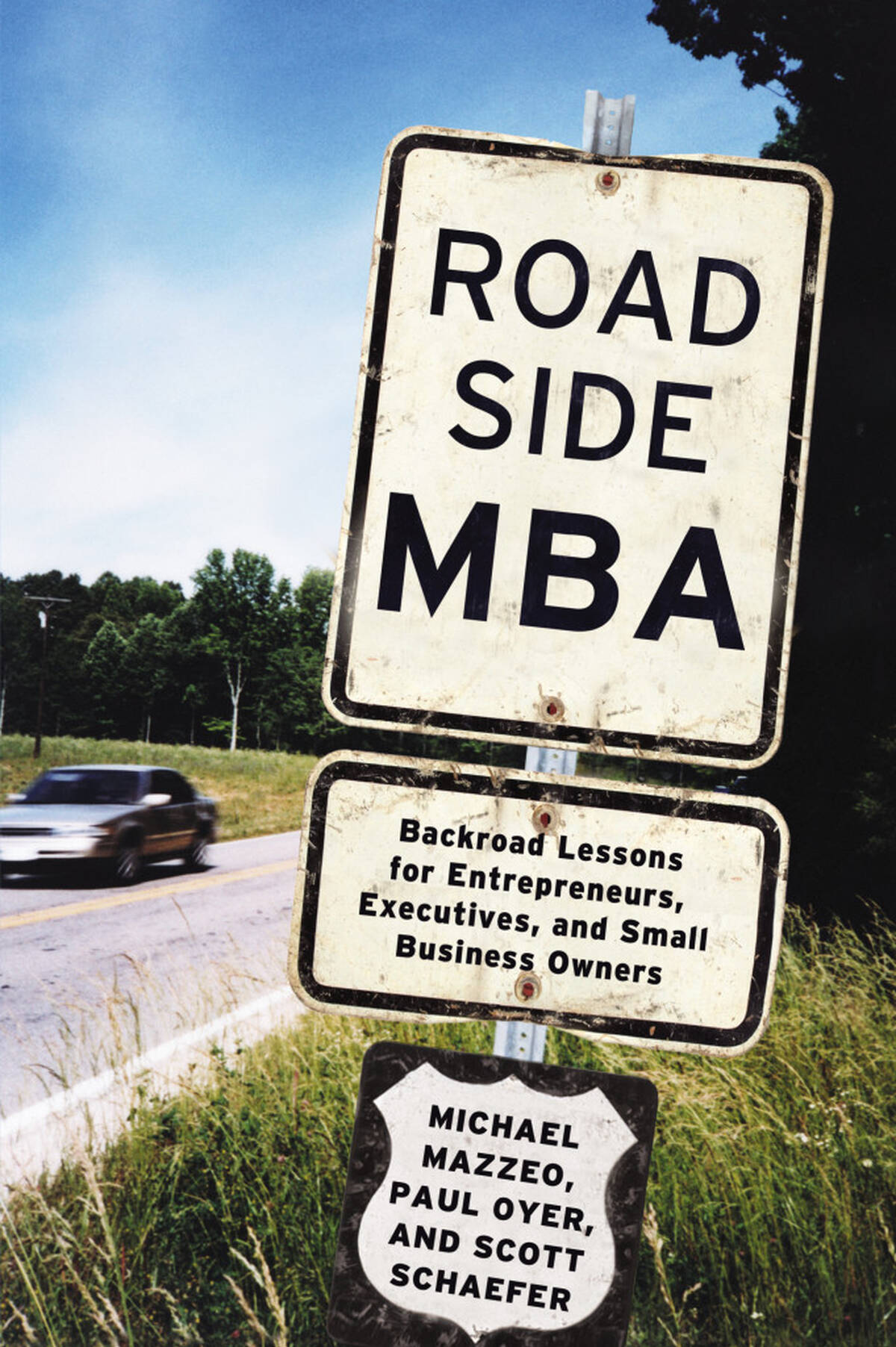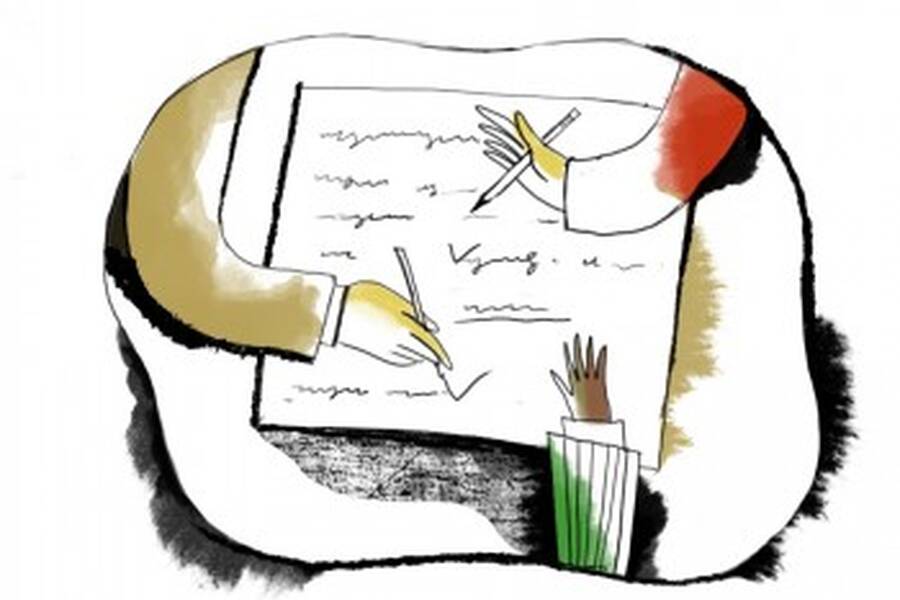Strategy Innovation Jun 2, 2014
An Interview with Mike Mazzeo about Roadside MBA
Backyard lessons for entrepreneurs, executives, and small business owners.

Many academic discussions about business strategy focus on the big guys—the Walmarts, the ExxonMobiles, the IBMs. But the vast majority of businesses out there are ones most people haven’t heard of: businesses like Enid, Oklahoma-based Aerosock, which manufactures colorful, durable windsocks, or Braces by Burris, a small Arkansas orthodontics company with its own unexpectedly useful corporate airplane.
Do the strategies taught in top MBA programs work for these small- and medium-sized businesses too? Mike Mazzeo, an associate professor of management and strategy at the Kellogg School, along with two fellow economists, Paul Oyer and Scott Schaefer, hit the road to find out. They have written about their endeavor in a new and surprisingly funny book called Roadside MBA. Mazzeo agreed to sit down with Kellogg Insight to discuss the book and the research that went into it.
This interview has been edited for length and clarity. For a longer version of our conversation, check out the accompanying podcast.
Kellogg Insight: This is quite an unusual premise for a book. What made three economists decide that a road trip, or actually six of them, was a good idea?
Mike Mazzeo: We figured out that the road was a great place to identify and to meet up with small- and middle-market type companies that often don’t get a lot of attention in the materials that we present for MBA students. We have a lot of material geared toward the very largest companies, and there’s a pretty prolific set of material targeted toward startups. But it’s that vast area in the middle where there was a hole.
We thought it would be interesting—both for us, from the perspective of learning more about strategy, and for individuals running companies, who would potentially get a lot out of hearing about the latest ideas in business strategy through the experiences of companies like theirs.
KI: So you wrote a book about this experience and in this book something called Mazzeo’s Law comes up again and again. What is Mazzeo’s Law and why is it so important?
Mike Mazzeo: A lot of people have this preconceived notion that there’s a right answer—that if companies only followed a particular recipe they would be successful. We reject that idea and really feel the right thing to do, in any specific situation, depends on the context. So what we’ve nicknamed Mazzeo’s Law states that the right answer to every strategic question is, “It depends.” The trick is to understand what it depends on. In the book, for a variety of strategic issues and common problems that companies face, we identify what it depends on.
The key success factor for this company was developing a way to accurately estimate what the precious metals were prior to purchase so that they could pay a fair price to the junk dealers.
KI: Over the course of your travels you’ve visited dozens of companies. Is there one company that really stands out in your mind? Perhaps one whose successful business model was especially surprising or unusual?
Mike Mazzeo: One of my favorites was a company that we met in a town called Dothan, Alabama, called Panhandle Recycling. It turns out that Panhandle Recycling only recycles catalytic converters from automobiles. Catalytic converters are a valuable byproduct of a junked car. They’re worth $200–400, depending on the size of the converter and the precious metals put into the filtration process. This creates a challenge for a company like Panhandle that is in the business of buying junk catalytic converters and selling the precious metals to companies on the open market.
The key success factor for this company was developing a way to accurately estimate what the precious metals were prior to purchase so that they could pay a fair price to the junk dealers. They had a very impressive Chief Information Officer, who kept the data about all the different kinds of catalytic converters—that was their key piece of intellectual property. We didn’t expect going in that a junkyard would have a CIO and that a spreadsheet would be their key piece of intellectual property!
KI: In a lot of ways, small- and medium-sized businesses are at a disadvantage when it comes to competing against the big guys, but you visited some companies that were able to use their smaller size and their intimate knowledge of the customer base to their advantage. Can you talk about one of these visits?
Mike Mazzeo: In Columbus, Indiana, we met Mike Bodart, the owner of Hoosier Sporting Goods, a very small company—but a very successful one. Mike was an intense member of the athletic community in Columbus. He knew all of the high school coaches, and he knew all the little league teams, and he knew when football practice started. The big box stores didn’t have that kind of specific information. Mike told us he would chuckle when he would see their ads for football equipment showing up in the newspaper three weeks after football practice had already started.
KI: But that’s kind of surprising, isn’t it, because presumably even these big box stores have local employees?
Mike Mazzeo: They have local employees, but unlike Mike, who owned his store, the local employees didn’t have that strong of an incentive to work that information. Mike would take orders for his store at softball games.
KI: So he’s out there on Saturday mornings and Sunday evenings?
Mike Mazzeo: Constantly wearing a Hoosier Sporting Goods t-shirt as an advertisement! In Columbus, Indiana, there are two high schools that play each other once a year. Mike sells a lot of t-shirts that time of year in the two schools’ colors, orange and brown. Mike knows that and stocks his store accordingly. But to have individually selected inventory at every one of its local stores based on information from the community—that’s something that’s very difficult for a big firm to execute on. If you’re a smaller firm, see what the big guys don’t do well and then try to organize your company around that. Mike said: look, we don’t stock anything in the store that Kmart or Walmart also stocks.
KI: Are some of these small- and medium-sized companies at an advantage in terms of being able to compete against the Internet?
Mike Mazzeo: In some ways yes and in some ways no. A smaller company would have an advantage when a strong service component is really important. On the other hand, the Internet is good at orange and brown t-shirts.
Mike Mazzeo is an associate professor of management and strategy at the Kellogg School. His book, Roadside MBA, published by Business Plus, is available online or in bookstores June 10, 2014.
Mazzeo, Michael, Paul Oyer, and Scott Schaefer. 2014. Roadside MBA: Backroad Lessons for Entrepreneurs, Executives and Small Business Owners. Business Plus.



